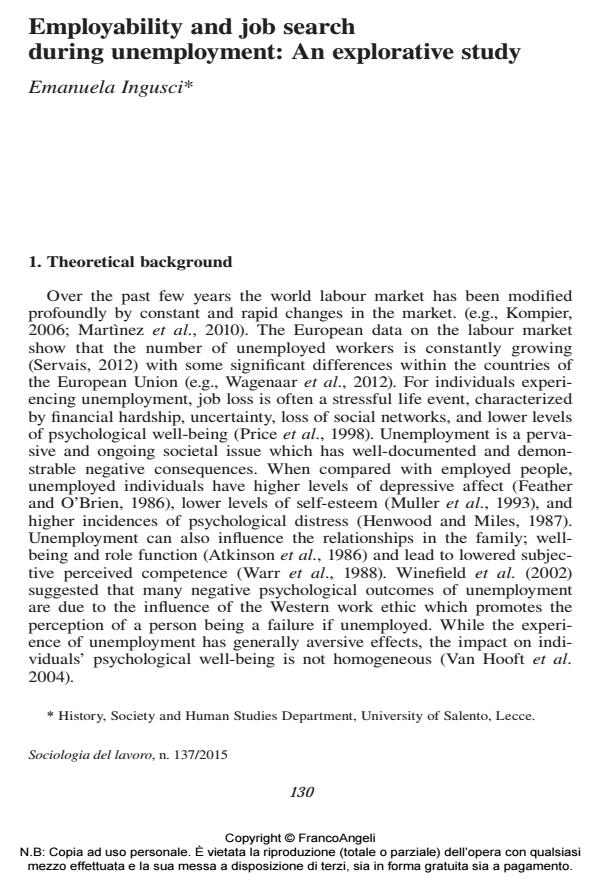Employability and job search during unemployment: An explorative study
Journal title SOCIOLOGIA DEL LAVORO
Author/s Emanuela Ingusci
Publishing Year 2015 Issue 2015/137
Language English Pages 15 P. 130-144 File size 135 KB
DOI 10.3280/SL2015-137008
DOI is like a bar code for intellectual property: to have more infomation
click here
Below, you can see the article first page
If you want to buy this article in PDF format, you can do it, following the instructions to buy download credits

FrancoAngeli is member of Publishers International Linking Association, Inc (PILA), a not-for-profit association which run the CrossRef service enabling links to and from online scholarly content.
Employability is defined as a psycho-social construct comprised of three dimensions: adaptability, career identity and human and social capital. Some scholars deal with employability from a person-centered perspective, independently from one’s employment status. It means that one can be employable without necessarily being in employment. The psycho-social model has been applied in helping individuals to cope with unemployment as it can be used to assist them to recognize that their employability can be self-improved, despite the temporary absence of employment. Starting from this perspective, the aim of this paper is to explore the employability in a cluster of unemployed workers. Employability was found out to be positively related to job search behavior.
Keywords: Employability, job search behavior, unemployment
Emanuela Ingusci, Employability and job search during unemployment: An explorative study in "SOCIOLOGIA DEL LAVORO " 137/2015, pp 130-144, DOI: 10.3280/SL2015-137008